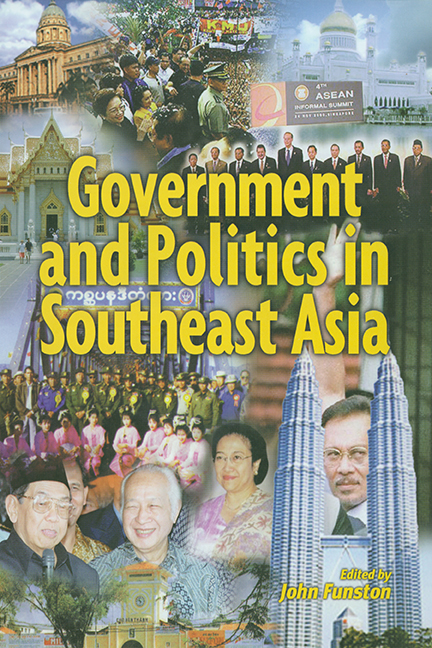8 - SINGAPORE
Meritocratic City-State
Published online by Cambridge University Press: 21 October 2015
Summary
INTRODUCTION
Singapore was governed by the British for nearly 140 years, from its founding by Stamford Raffles in January 1819 until its attainment of self-government in June 1959. In July 1926, Singapore became part of the Straits Settlements together with Malacca and Penang. The pre-colony phase ended in 1867 when control of the Straits Settlements passed from the India Office to the Colonial Office. British colonial rule was briefly interrupted by the Japanese occupation (February 1942–August 1945). Singapore became a crown colony in 1946 and its constitutional status was changed to a ministerial form of government under the Rendel Constitution in 1955.
The first general election held in April 1955 resulted in the formation of the Labour Front coalition government under the leadership of David Marshall. The People's Action Party (PAP) government assumed office in June 1959 after winning 43 of the 51 seats in the May 1959 general election and capturing 54.1 per cent of the valid votes. On 16 September 1963, Singapore achieved independence from Britain by becoming one of the 14 states of the Federation of Malaysia. However, Singapore's sojourn in the Federation was brief as after 23 months, it separated from Malaysia on 9 August 1965, and became the 117th member of the United Nations on 21 September 1965.
Even though Singapore has been independent for the past 35 years, there has been no change in government during this period as the PAP government was re-elected nine times. Lee Kuan Yew served as Prime Minister from June 1959 until November 1990, when he became Senior Minister and was succeeded by Goh Chok Tong. This change in political leadership has also been accompanied by a shift from a paternalistic to a more consultative leadership style.
- Type
- Chapter
- Information
- Government and Politics in Southeast Asia , pp. 291 - 327Publisher: ISEAS–Yusof Ishak InstitutePrint publication year: 2001



